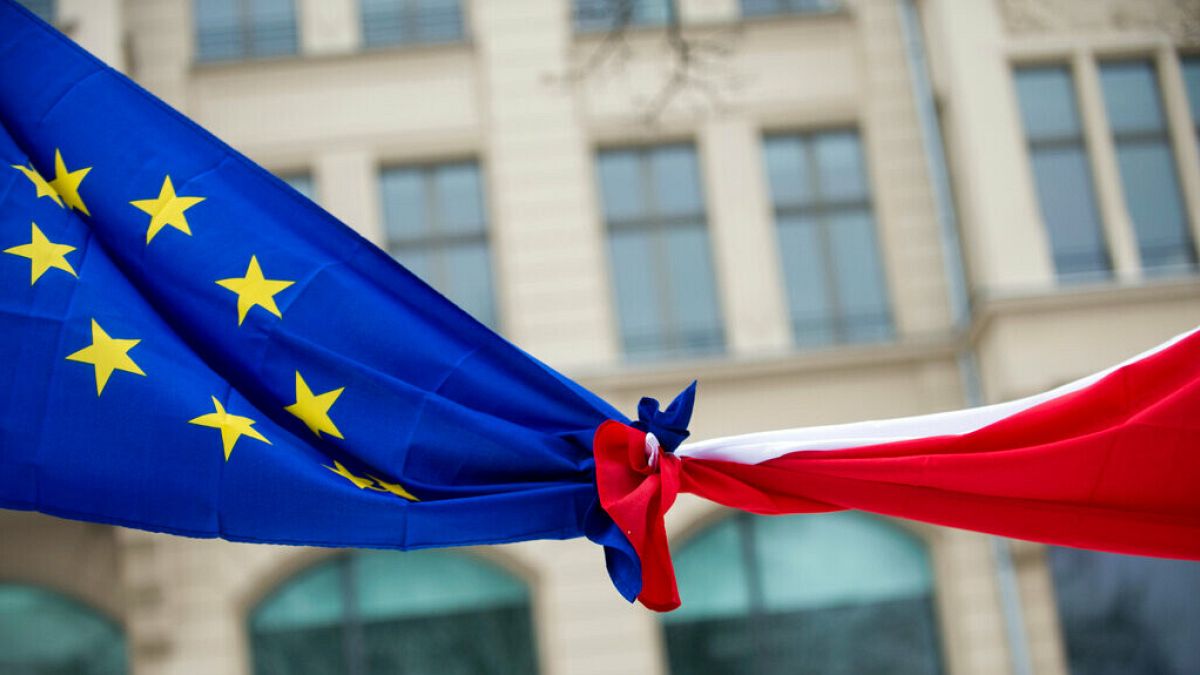The relationship between Warsaw and Budapest has taken a hit after Hungary granted asylum to Polish fugitive lawmaker Marcin Romanowski. This move has led to tensions between the two EU members, with Poland uninviting Hungary’s ambassador to its EU presidency inauguration gala. This decision was made in response to Hungary granting asylum to Romanowski, who is facing serious charges in Poland. The incident has exacerbated existing tensions between the two countries, particularly in light of their differing views on Russia’s invasion of Ukraine in February 2022.
The diplomatic spat between Poland and Hungary has deepened due to their divergent stances on several key issues. Warsaw has criticized Budapest for its close ties with Moscow, while Hungary has accused Poland of double standards regarding Russia’s war. The current Polish government, under Prime Minister Donald Tusk, has taken a more pro-EU stance compared to the previous Eurosceptic government led by the Law and Justice party. This shift has further strained relations between the two countries, with Hungary’s Prime Minister Viktor Orbán facing criticism for his controversial meetings with Russian and Chinese leaders during Hungary’s EU presidency.
The ongoing tensions between Poland and Hungary have culminated in Poland’s decision to take Hungary to the European Court of Justice over its refusal to comply with a European Arrest Warrant issued against Marcin Romanowski. The situation has underscored the deepening divisions within the EU, with Poland’s upcoming presidency focusing on security and defense under the slogan “Security, Europe!”. The rift between Warsaw and Budapest highlights the challenges facing the EU as it navigates complex geopolitical issues, particularly in the aftermath of Russia’s invasion of Ukraine.
The decision to uninvite Hungary’s ambassador to the EU presidency inauguration gala reflects the growing discontent between Poland and Hungary, with Warsaw’s Deputy Minister for European Affairs emphasizing that the Hungarian ambassador was not a welcome guest at the event. This move underscores Poland’s firm stance on the issue of political asylum and highlights the deteriorating relationship between the two countries. As Poland assumes the leadership of the EU Council for the next six months, it is likely that tensions between Warsaw and Budapest will continue to play out on the European stage.
The fallout from Hungary’s decision to grant asylum to Marcin Romanowski has underscored the divergent paths taken by Poland and Hungary in recent years. Warsaw’s criticism of Hungary’s relationship with Moscow and Budapest’s accusations of Polish hypocrisy have further strained their already fragile relationship. As Poland gears up to take the helm of the EU Council, the focus on security and defense will be a key priority for Warsaw, highlighting the shifting dynamics within the EU. The ongoing rift between Poland and Hungary serves as a reminder of the challenges facing the EU as it seeks to navigate complex geopolitical issues and maintain unity among its members.
In conclusion, the deteriorating relationship between Warsaw and Budapest following Hungary’s decision to grant asylum to a Polish fugitive lawmaker has exposed the deepening divisions within the EU. The ongoing diplomatic spat between Poland and Hungary reflects their differing views on key geopolitical issues, including Russia’s invasion of Ukraine. As Poland prepares to take over the presidency of the EU Council, the focus on security and defense will be central to its agenda. The rift between Warsaw and Budapest underscores the complex challenges facing the EU as it seeks to maintain unity and cohesion in the face of growing tensions among its members.











